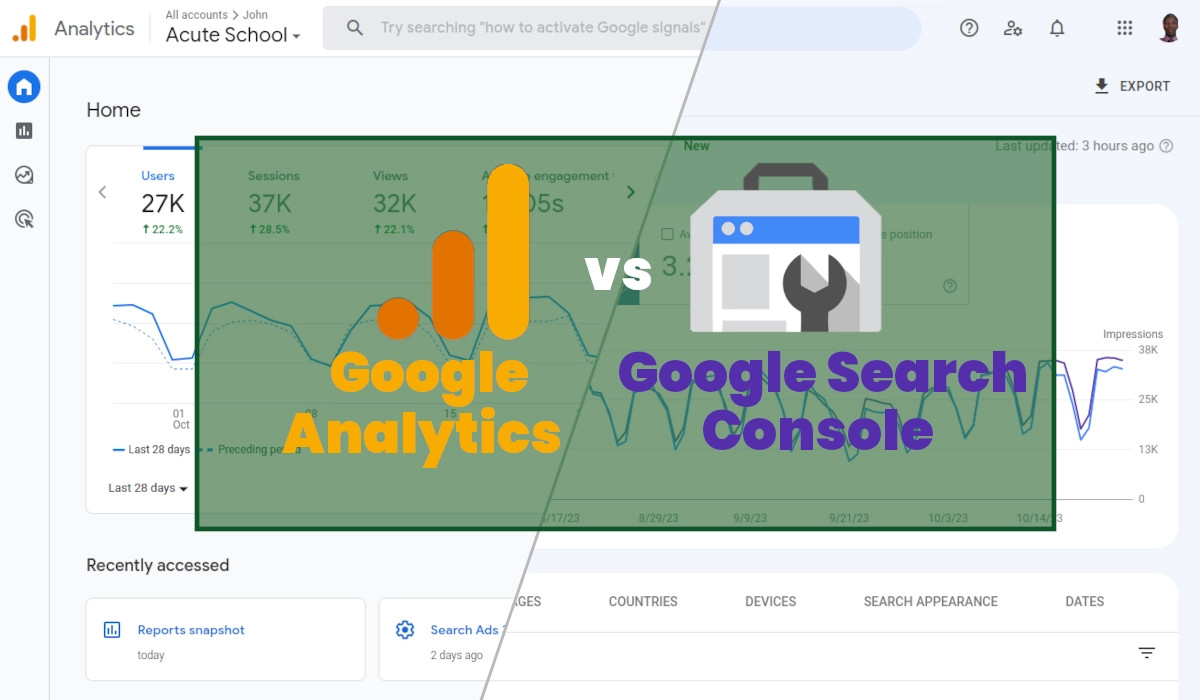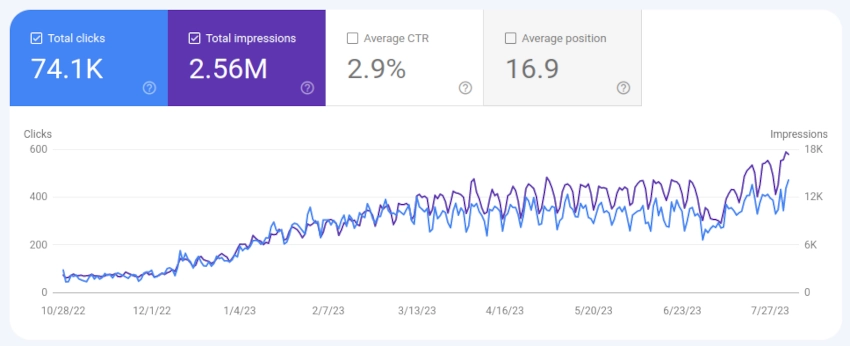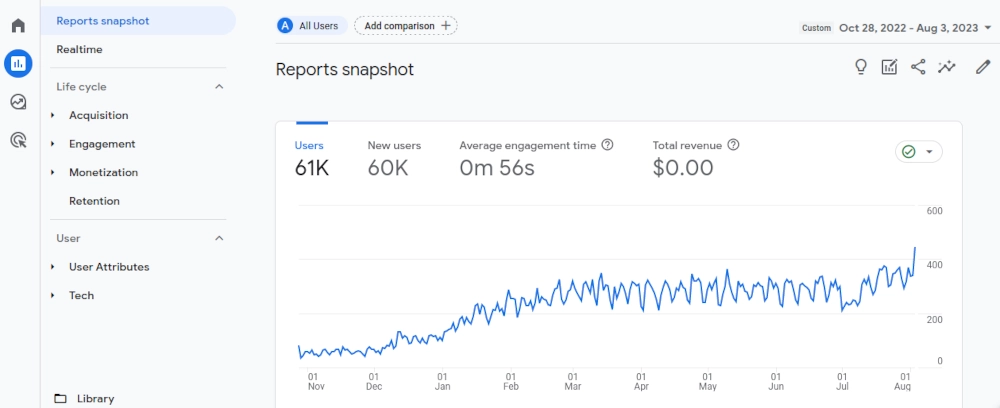Google Search Console vs Google Analytics
John / 03 Oct 2023
After creating a website, the next crucial step is ensuring it gets traffic (visitors) in order for you to benefit in any way from it.
Traffic is the lifeblood of any website as it allows you to reach your target audience and achieve your marketing goals. It comprises potential customers, readers, or users.
Traffic acquisition and analysis go hand in hand for a successful online venture. You need to implement ways of driving traffic to your website, while at the same time tracking and analyzing it to understand your website's performance and user behavior. That's where tools like Google Search Console and Google Analytics come into play.
In this article, we will look into the differences between Google Search Console and Google Analytics.
Acquiring traffic for your website can be achieved through various methods, both paid and organic. Paid methods include advertising, while organic methods focus on attracting visitors naturally, without direct costs. Though organic traffic takes time to build, it is often seen as more sustainable and cost-effective in the long run.
Among the organic methods, search traffic from popular search engines like Google drives a significant portion of web traffic, which can be highly targeted. Statistics show that around 93% of all web traffic begins with a search engine.
To tap into this valuable source, you must optimize your website for search engines and understand how search engines perceive your site. This is where Google Search Console among other tools comes in.
Google Search Console

Google Search Console (GSC) is a free web service offered by Google to help website owners monitor and optimize their site's presence in Google's search results.
Features of Google Search Console
Here are some of the many important features GSC offers:
- Performance Data: Google Search Console provides you with detailed insights into how your website performs in Google's search results. It shows you the number of clicks, impressions, click-through rates, and average positions for your website's pages and various search queries.
- Index Coverage: It helps you identify and resolve indexing issues that may prevent Google from crawling and indexing your web pages correctly. This is vital for ensuring that your content appears in search results.
- URL Inspection: This feature allows you to check whether or not a specific page on your site has been indexed on Google, and how Googlebot views it. It is useful for debugging issues related to indexing and rendering. It also allows you to submit a URL to Google for indexing.
- Sitemaps: This feature allows you to submit your website's sitemap to help Google discover, crawl, and index your web pages more efficiently.
- Mobile Usability: This feature provides insights into how mobile-friendly your website is, essential in an era where mobile traffic is significant.
- Links: This feature enables tracking of both backlinks and internal links on your website. You can monitor the top-linked pages from other sites or other pages within your website, top-linking websites, and top-linking text.
- Security Issues: Google Search Console notifies you of any security issues, such as malware or hacked content, that may harm your site's reputation.
- URL Removal: This allows you to request the removal of pages with outdated or inaccurate information from Google Search.
Google Analytics

Google Analytics is a comprehensive web analytics tool provided by Google to help you understand your website's traffic, user behavior, and more.
Features of Google Analytics
Below are some of the many features Google Analytics offers:
- Traffic Sources: Google Analytics shows you where your website traffic is coming from, whether it's from search engines, social media, referrals, or direct visits.
- User Behavior: You can analyze how users interact with your website, tracking page views, session duration, and bounce rates. This information helps you identify which pages are performing well and which need improvement.
- Conversion Tracking: It allows you to set up goals and track conversions, such as form submissions, e-commerce transactions, or other desired actions on your site.
- Audience Insights: Google Analytics provides demographic and geographic data about your website's visitors, helping you tailor your content and marketing efforts.
- Real-Time Data: You can see a live feed of your website's activity, which is particularly useful for tracking the immediate impact of marketing campaigns or new content releases.
Google Search Console vs. Google Analytics: Key Differences
Google Search Console and Google Analytics are both valuable tools for website owners, but they serve different purposes. The table below summarizes the key differences between the two tools:
| Aspect | Google Search Console | Google Analytics |
|---|---|---|
| Focus | Primarily focus on organic search traffic and how your site performs in search engine results. | Provides comprehensive insights into all aspects of website traffic and visitor behavior. |
| Data Source | Relies on data directly from Google's search engine. | It aggregates data from multiple sources, including referral traffic, direct traffic, social traffic, and organic search. |
| Purpose | To help you improve your site's visibility in search engines. | To help you understand your audience and website performance holistically. |
Both tools are easy to integrate into your website. Integrating them both will allow you to see a complete picture of how your website performs in Google Search, and how the traffic comes to and interacts with your website.
Google Search Console and Google Analytics can be connected to get a more comprehensive view of your website's performance. This will allow you to combine data from both tools and gain deeper insights into how your site is performing, especially concerning search traffic and user behavior.
Conclusion
Google Search Console and Google Analytics are both valuable tools for website owners. By understanding the differences between the two tools and how they can be used together, you can gain a deeper understanding of your website traffic and visitor behavior.
This knowledge can then be used to improve your website's performance and achieve your marketing goals.
